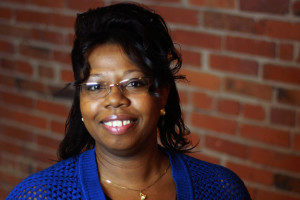The Trauma of Microaggressions: The Spectrum of Trauma, Part Three

This week on The Allender Center Podcast, Dr. Dan Allender is joined by Dr. Angela Parker, Assistant Professor of Biblical Studies at The Seattle School of Theology & Psychology, for the conclusion of our series engaging how the existence of seemingly small, daily experiences of harm fit into our broader understanding of trauma. Last week, Dan was joined by Abby Wong-Heffter, whose article “Post Traumatic Single Disorder” was a part of what prompted this series.
 Dr. Parker, a womanist New Testament theologian, visits the podcast to talk about a very particular form of “little t” trauma: the subtle and yet overwhelmingly frequent microaggressions that are born out racism, biases, and quick-draw assumptions and judgments of others. These microaggressions, like many of the “lesser” traumas discussed in this series, are often dismissed as “not that big of a deal,” though they have a compounding effect that is devastating if not addressed.
Dr. Parker, a womanist New Testament theologian, visits the podcast to talk about a very particular form of “little t” trauma: the subtle and yet overwhelmingly frequent microaggressions that are born out racism, biases, and quick-draw assumptions and judgments of others. These microaggressions, like many of the “lesser” traumas discussed in this series, are often dismissed as “not that big of a deal,” though they have a compounding effect that is devastating if not addressed.
As a female, African-American professor, one of the forms of microaggression faced by Dr. Parker comes in interacting with students who have primarily, if not exclusively, been taught by white professors and teachers throughout their lives. “Students look at me and see difference, and are fearful of the difference they see,” she says. “I will hear from students that ‘the way you are teaching is not an academic way of teaching,’ or ‘you are too loud,’ or ‘you move too much.’ And being a Baptist Pentecostal woman and a black Baptist preacher, I tend to be kind of loud, I tend to move a lot because I’m not the straight, standard, stand-behind-the-desk teacher. So when I hear that, I often hear: angry black woman, or I hear loud black woman.”
Dan: The comment is the tip of the pyramid, but the base of the pyramid is so many assumptions.
Angela and Dan talk about how thousands of microaggressions, like criticisms of academic ability, or compliments that also manage to sneak in subversive jabs and insults, all build onto each other and compound into something large. Smaller traumas reflect larger traumas, in a manner that Dan compares to many small instruments building a large orchestra.
Toward the end of this episode, Dan shares a stirring memory of sitting in Dr. Parker’s interview for the position at The Seattle School a year ago, listening as she talked about her passionate, deeply embodied belief in the resurrection, radiantly sharing her faith that death and trauma do not have the final word. “Oh you know something of the unique cards you have been dealt, not only in terms of heartache but in terms of giftedness,” Dan tells her. “And you have allowed so much of that to be woven into a kind of glory that—no wonder our students are thrilled in having you, but also some struggling to know what to do with this kind of glory that you offer, you live, you invite something about the glory of Jesus.”
